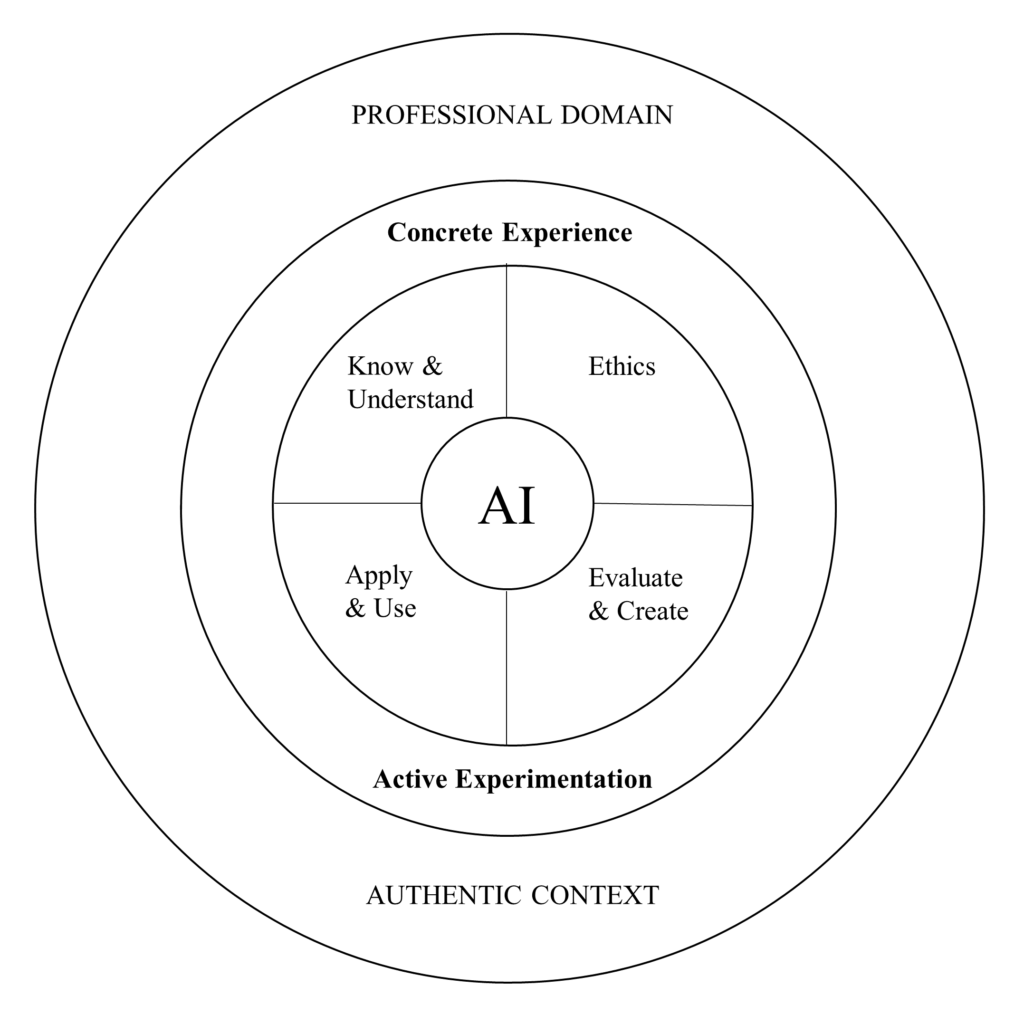Background
While Artificial Intelligence (AI) has significantly expanded into business and society in recent decades (Southworth et al., 2023), the imperative of AI literacy as a skills-first approach is supported by the rise of ChatGPT and generative AI (GAI) which is rapidly impacting business practice (Cardon et al., 2023; Dwivedi et al., 2023; Kshetri et al., 2023). GAI is a subset of AI tools that can create seemingly new content, including text, images, audio, and video, also referred to as synthetic media (Kshetri et al., 2023; Riparbelli, 2023). The value of GAI is significant in sectors like marketing, where producing personalised content at scale is critical for engaging with customers and other stakeholders and where GAI tools have been rapidly adopted (Kshetri et al., 2023). With the GAI market projected to become a $1.3 trillion market by 2032 (Bloomberg, 2023), it is critical for business education to integrate practical AI use and tools skills, which in the case of GAI, is already used by 73% of US organisations (Dencheva, 2023).
AI Literacy Framework for Workforce Development
For organisations seeking to integrate AI literacy into their workforce development, I have developed an evidence-based framework (based on Ng et al. 2021a, 2021b) for how to do so in the context of their professional domain.

The need for rapid digital upskilling suggests that hands-on, ‘learning by doing’ (concrete experience and active experimentation) are key to employees’ AI literacy development. Research suggests that domain-specific applied AI use over a period of time will equip learners with the knowledge and skills with minimal formal training (Dell’Acqua et al., 2023; Mollick, 2023).
Teaching AI Literacy
Based on the AI literacy framework, I have designed and taught courses at University Master’s level (see Teach AI), as well as in short courses and workshops. I also upskill non-technical staff members in AI in my business leadership role based on the framework. The AI literacy intervention for managers develops contextual applied understanding of AI by combining project-focused tool training with coaching and touch point meetings over a period of three months.
References
To follow – articles currently in press.